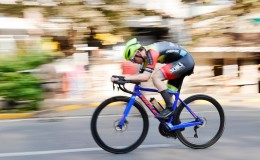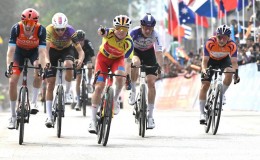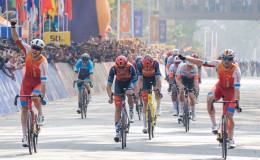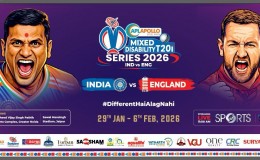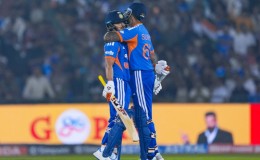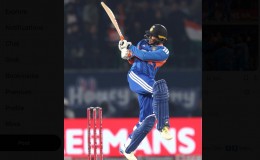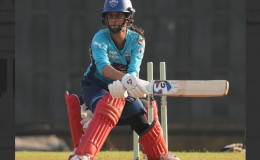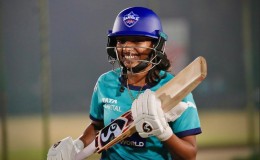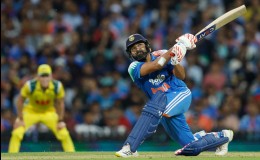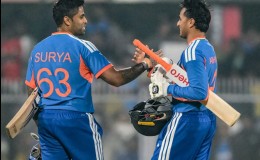UNDERSTANDING THE SCIENCE OF SPORTS
Indian athletes tend stagnate after a certain level. For example, top Indian 100 meter sprinters have been clocking timing in the range of 10.33-10.36 seconds the past 4-5 years. It's not as if they are not capable of improving. The question is how? To improve in a fair manner – without resorting to doping -- physiology, anthropometry, biomechanics, psychology and nutrition comes into effect. That's where sports sciences expert steps in with well defined area of operation.
Physiologist: A specialist who studies the biological functions of living organisms and their parts. An exercise physiologist uses this knowledge to cause an enhancement of performance of the athlete in the field, apart from formulating a training programme on scientific lines based on the actual precise potential of the athlete, as well as regular scientific monitoring of training.
Psychologist: A person trained and educated to perform psychological research, testing, and therapy. Asports psychologist uses his acumen to motivate the athlete to bring out his best. If an athlete can really believe that he can do it, the battle is already half won! Further, the sports psychologist assesses the personality traits of each sports persons and offer mental as well as psychological training to optimise their performance.
Anthropometrist:
A specialist who studies the measurement of the size and proportions of the human body for use in anthropological classification and comparison. A sports anthropometrist primarily uses his knowledge, in collaboration with those of the exercise physiologist and sports biomechanist to ascertain the mobility of various joints and optimize their coordinated movement, ascertain the body type of the athlete, formulate weight loss strategies, in consultation with the sports nutritionist and exercise physiologist.
Bio-chemist: A specialist who studies the chemical substances and vital processes occurring in living organisms; biological chemistry; physiological chemistry. A sports biochemist dwells on the transient as well as the long term effects of exercise on the biochemical transients of the body and plays a crucial role in the scientific monitoring of training.
Bio-mechanist: A specialist who studies the action of external and internal forces on the living body, esp.on the skeletal system. A sports biomechanist uses his understanding in discerning the movement of the different body parts as well as the entire body, during sports performance, particularly relevant in sprints, jumps, throws and lifts. The various angles the body (parts) make during take off or throw(s), play a critical role in performance. Technique correction is also a major part in exercise biomechanist.
Nutritionist: A person who is trained or expert in the science of nutrition. A Sports nutritionist is a scientist who assesses the nutritional status as well as the nutritional requirement of the sports persons, based on the enormity of the training load. Computation of the energy expenditure profile (to estimate the amount of energy a sports person(s) burns, during training), is also a very critical.
Sports Medicine Doctors: A physician with specialized training who promotes lifelong fitness andwellness and encourages prevention of illness and injury. A sports medicine doctor monitors the medical aspects of sports training, ensures that overtraining doesn't occur, and so, is more proactive in the field than being reactive (treating injuries once they occur). Of course, treatment and management of an injury or a disorder also forms the part and parcel of sports medicine.
Ironically, although the National Institute of Sports at Patiala, has been conducting a two year Diploma Course in Sports Medicine (DSM), the only sports medicine diploma recognised by the Indian Medical Council and affiliated to the Baba Farid University of Health Sciences, Faridkot, Punjab (and more than 75 medical graduates have successfully completed their post graduate diploma in sports medicine), yet, none of the SAI doctors recognised post graduate degree or a diploma in sportsmedicine! All present medical doctors in SAI are plain M.B.B.S. degree holders.
SOME FACTS
• Sports Authority of India in the post 1982 Asian Games phase employed about 60 sports scientists, including doctors, to provide scientific inputs to Indian sports. But post 1992 the government put a blanket ban on further recruitment post, with no avenues for professional growth. Even as the rest of the world is embracing science and technology in sports, India has moved in the reverse direction.
• Department of Sports Sciences at NIS, Patiala came into existence in 1982 with 45 rooms. Currently they have just three people to occupy them.
• SAI counts GTMT (General Theory and Methodist and Training) as part of sports science experts, but it exist no where in the world now. Basically they are physical education trainers.
SOME OF THE ROOT CAUSES
Lets' get to try and attempt to find out the root cause(s). Let us start with the coach. Everyone believes that the centre of focus in sports is the athlete and the coach. But in reality the Indian coach is a haggard lot. Let's see why: Firstly, lets say coach "A" is training athlete 'Y' for five years, during his/her formative years. Athlete 'Y' excels in the Nationals and is called to the National camp and handed over to Coach "B". The training strategies of Coach "A" and "B" not only need not be dissimilar but could be conflicting. The athlete, 'Y' is perplexed. The training goes on till the end of the camp. Athlete 'Y' now goes back to coach "A". This shuffling continues till the team is announced for a major international competition where the athlete 'Y' finds that he/she is selected in the team but to his/her dismay neither coach "A" or "B are accompanying, but that the federation has named coach 'Z' as a part of the team. And you expect the athlete to perform despite this?
Secondly, often along with coaches "A, B and Z" we find coach "alpha" or "beta" or "gamma" 'supervising' the training of the coaching of athlete 'Y' by the coaches "B" or "Z". This is the 'foreign coach syndrome' and most Indian athletes and coaches are wary of it (excepting in some disciplines like shooting). Foreign coaches, often with dubious credentials walk in the Indian sports arena with aplomb, getting salaries more than 2000 US$ per month, against the paltry salary that an Indian coach enjoys. How utterly unfair is our system!
As far as equipment is concerned, we never can afford to have the best of the lot. A world class racing cycle can cost up to a hundred thousand US dollars. Similarly, archery, shooting etc. can be prohibitively expensive. And our country has the dubious distinction of being quite high in the list of corrupt nations, need we say more? Often we end up paying more for substandard equipment, our grounds decorated with Astroturf that is poorly laid, shoes that come in a size either too big or too small!
The training (and competition) calendar lacks objectivity and far sight, often left to the whims and fancies of federation people, who, with all due respect, in most of the cases, have never played the game themselves.
By Rakesh Jha
Indian Sports News

